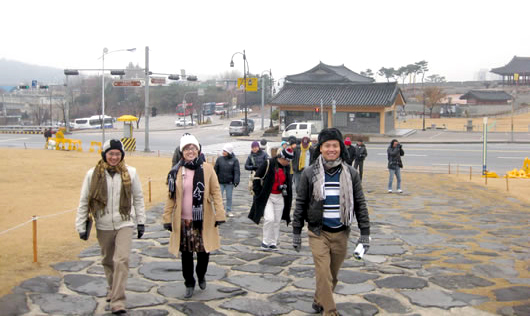Vietnamese outbound travelers decamp in destination countries The  Vietnamese tourists in A lot of Vietnamese have fled abroad by taking outbound tours and then escape from the field of view to stay in the destination countries. Most recently, in early December 2013, a group of 15 Vietnamese “disappeared” in Everything had run smoothly as scheduled until the lunchtime, when the travelers, one after another, disappeared. The people escaped without passports. According to the Vietnamese Embassy in According to Nguyen Tien Dat from TransViet Travel, those who attempt to flee, always play tricks to cheat the tour organizers (travel firms) and visa agencies. Dat said his firm was once cheated by “travelers.” A director of a construction company registered a tour to Lately, Dat found that the director came forward and helped the workers prove their financial capability and labor contracts. Dat believed that if the escaped workers were caught by the South Korean police, they would be forced to pay the fine of several thousands of dollars and expelled to “Cunning travelers can stay illegally in According to Nguyen Huu Lam, Director of Arirang’s Vietnam Office, several Vietnamese travelers illegally stay in A report by the Vietnam Tourism Association showed that 3.5 million Vietnamese traveled abroad in 2012. Travel firms, for example, could be fined up to $10,000 for every Vietnamese traveler that fled, and they would have their operation licenses revoked for the high numbers of fled travelers. The South Korean Embassy, for example, once refused to provide visas to the travelers of Du Lich Viet company for three months, while European in 2012 refused to provide visas for six months. Travel firms said they need to be very cautious when considering the documents of the travelers booking outbound tours. A single traveler who never went abroad before and now books a tour to The firms need to check the documents of the travelers from Hai Phong, Quang Ninh, Nghe An, Thanh Hoa and Ha Tinh carefully, because they have a lot of fellow-countrymen in foreign countries. Ngoc Ha, |
↧
Article 4
↧